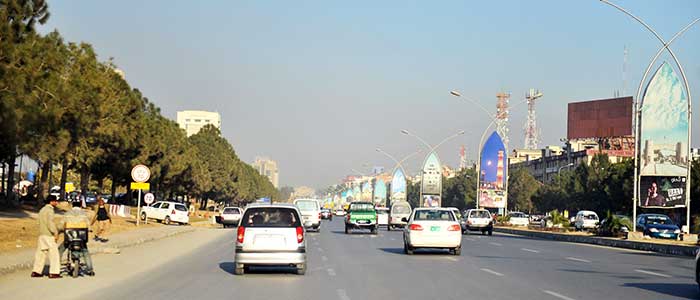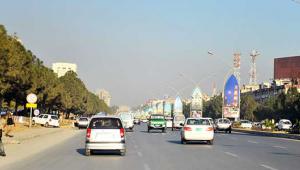Web_Islamabad_pakistan_236392390.jpg

Islamabad, Pakistan's capital city
Mitsuhiro Furusawa, deputy managing director and acting chair of the IMF board, said the programme had helped restore macroeconomic stability, boost growth and cut the fiscal deficit.
When Pakistan requested IMF support in 2013, the deficit stood at 8% of the country’s GDP ($18bn), which in turn was growing at a rate of 4.4%.
As of June this year, the fund said Pakistan was on track to hit its target of reducing the deficit to 4.4% of GDP in 2015/16, and is committed to cutting that further to 3.8% the following year.
Growth will likely reach 4.7% this year and 5% in the next, the fund said, with the economy edging towards its pre-crisis growth rate of above 6%.
But Furusawa warned that “significant challenges remain” for Pakistan.
The country’s substantial public debt burden, for example, remains high, and is expected to reduce by just over 2% on 2013 levels, when it stood at 64.3% of GDP.
Furusawa also said that moving forward with key reforms is “pivotal” to achieving higher and more inclusive growth.
“Restructuring and attracting private sector participation in public enterprises is key to ensure their financial viability and reduce fiscal costs.”
The IMF’s rescue package was contingent on Pakistan selling off its state-owned enterprises, including the loss-making Pakistani airlines and steel mills.
Another key aim of the programme was to reform the country’s crisis-ridden energy sector, which has been struggling to bridge a substantial supply gap. Power outages have regularly plunged the nation into darkness, and taken their toll on economic development.
Furusawa said continuing with power sector reform and changes to the business climate will increase competitiveness, foster investment and support private sector led growth and job creation.
Under the programme – the first that the nation has completed with the IMF since 2001 – Pakistan also made gains in domestic revenue mobilisation.
At the beginning of the programme, Pakistan had one of the lowest tax-to-GDP ratios in the world – the World Bank put it at just 10.1% in 2012. But the IMF expects this to rise to over 12% next year.
Pakistan also recently signed up to the OECD’s international initiative to combat tax avoidance and evasion, which is expected to further help the government close in on those able to exploit cross-border loopholes to evade paying their fair share.













